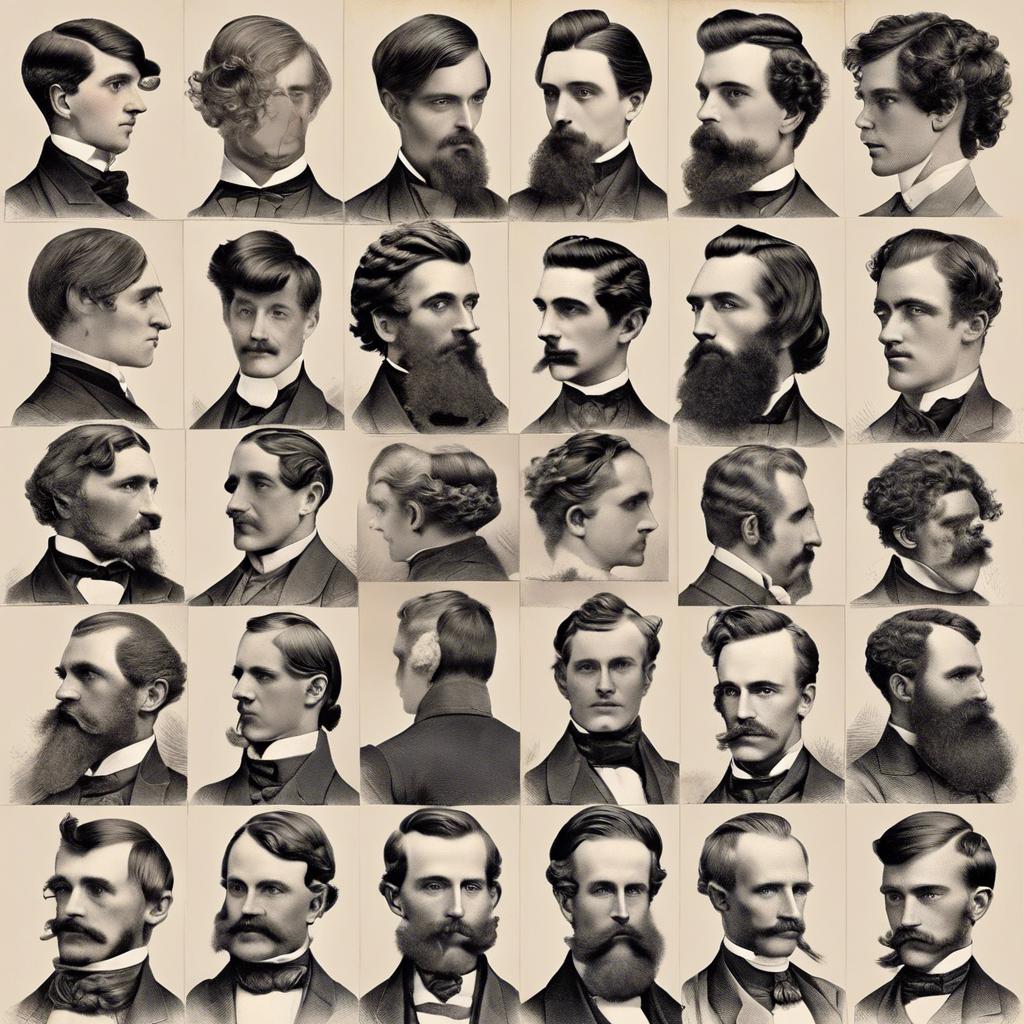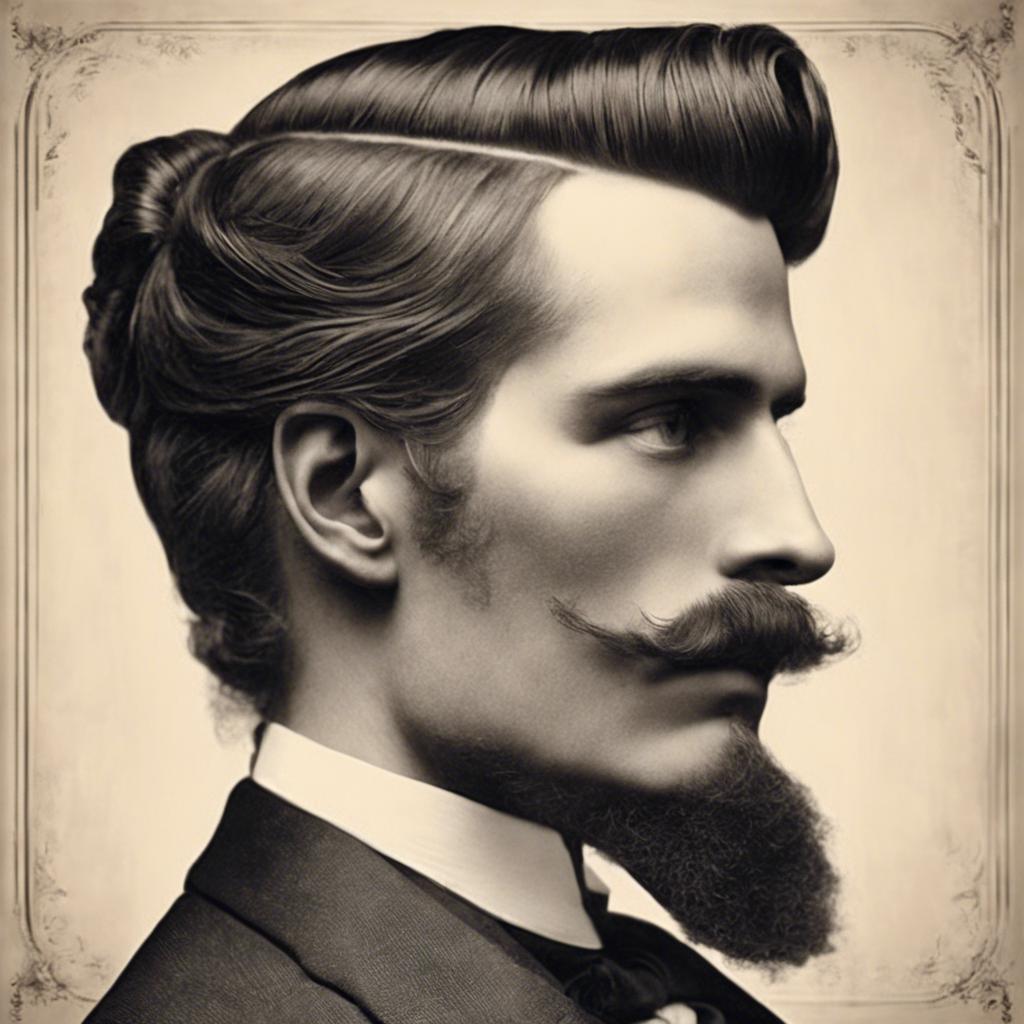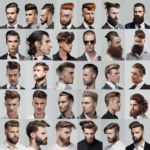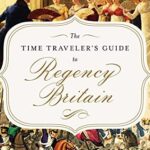In the 19th century, men’s hairstyles were a reflection of societal norms and cultural trends. From the elegant pompadour to the rugged sideburns, each hairstyle told a unique story about the individual’s status and personality. Let’s delve into the fascinating world of 19th century men’s hairstyles and uncover the significance behind these iconic looks.
Step Into the World of Cheryl Bolen
Dive into the enchanting stories of love, intrigue, and elegance set in the Regency Era. Cheryl Bolen's novels offer timeless romance and captivating tales that will leave you wanting more.
Explore Cheryl Bolen's Books Now
Popular Mens Hairstyles of the 19th Century
During the 19th century, men’s hairstyles varied widely, reflecting the diverse trends and cultural influences of the time. From the elegant and refined looks of the Victorian era to the more relaxed and natural styles of the later decades, hair played a significant role in defining men’s fashion.
Some of the most popular men’s hairstyles of the 19th century included:
- Slicked Back Hair: A classic look that never goes out of style, slicked back hair was achieved by using pomade or oil to sweep the hair back from the forehead.
- Curled Hair: Men often styled their hair into tight curls or waves, using heated curling irons or natural methods such as twisting wet hair and letting it dry.
- Long Hair: In the later part of the century, long hair became more fashionable, with men growing their hair out and often wearing it in loose, flowing styles.
| Decade | Popular Hairstyle |
|---|---|
| 1820s | Side part with sleeked back hair |
| 1860s | Beard and mustache with long, flowing hair |
| 1890s | Short cropped hair with sideburns |
men’s hairstyles in the 19th century were a reflection of the societal norms and fashion trends of the time. Whether sporting a dapper side part or embracing flowing locks, men used their hair to express their individuality and style, making a statement with every strand.
Evolution of Mens Hair Trends in the 1800s
In the 1800s, men’s hairstyles went through a fascinating evolution, reflecting the changing societal norms and fashion trends of the time. The early 19th century saw men sporting long, flowing locks, often tied back with ribbons or styled with intricate curls. As the century progressed, hairstyles became more structured and refined, with shorter cuts and sleeker looks becoming increasingly popular.
One iconic hairstyle of the 1800s was the side part, where the hair was slicked down on the sides and parted to one side. This style exuded sophistication and class, favored by gentlemen of all social classes. Another popular look was the pompadour, where the hair was swept upwards and back from the forehead, creating a voluminous and dramatic effect.
Throughout the century, men’s hairstyles continued to evolve, with trends shifting from natural curls to more groomed and polished styles. Hair products such as pomades and oils became essential for achieving the desired look, showcasing the importance placed on grooming and appearance during this era.
Historical Influences on 19th Century Mens Hairstyles
Men’s hairstyles in the 19th century were greatly influenced by historical events and cultural trends of the time. From the conservative and clean-cut looks of the early 1800s to the more adventurous and elaborate styles of the late Victorian era, hair fashion reflected the changing times.
During the early 19th century, men’s hairstyles were characterized by simplicity and neatness. Short, slicked-back hair was popular among gentlemen, reflecting the restrained and formal nature of the Regency period. Sideburns were also a common feature, adding a touch of masculinity to otherwise understated hairstyles.
As the 19th century progressed, men’s hairstyles became more elaborate and varied. The influence of Romanticism and the rise of dandyism led to the popularity of longer hair and more voluminous styles. Mutton chop sideburns became fashionable, along with curls, waves, and even facial hair adornments like mustaches and beards. This shift in hair fashion reflected a new sense of individualism and self-expression among men during the Victorian era.
Expert Tips for Recreating Authentic 19th Century Mens Hairdos
Are you looking to add a touch of elegance and sophistication to your look by recreating authentic 19th-century men’s hairstyles? Look no further! We have gathered expert tips to help you achieve the perfect vintage hairstyle that will transport you back in time.
One key element in creating an authentic 19th-century men’s hairstyle is the use of pomade or hair wax to achieve the slick, polished look that was popular during that era. Apply a generous amount of pomade to your hair and comb it through thoroughly to ensure that every strand is coated evenly. This will help you achieve the slicked-back look that was iconic in the 19th century.
Another essential tip is to pay attention to the details when styling your hair. Whether you are going for a dapper side part or a refined pompadour, make sure to use a fine-tooth comb to create clean, crisp lines. Finish off your look with a touch of hair powder or a subtle hair accessory, such as a silk cravat or a top hat, to truly capture the essence of 19th-century style.
Concluding Remarks
the 19th century was a time of great innovation and creativity in men’s hairstyles. From the elaborate towering pompadours to the sleek and sophisticated side parts, the men of this era took great pride in their appearance. These hairstyles not only reflected the societal norms and fashion trends of the time but also served as a form of self-expression and status symbol. As we look back on these historical hairstyles, we can appreciate the artistry and attention to detail that went into creating them. Let us continue to be inspired by the styles of the past as we forge ahead into the future, always striving for excellence and individuality in our own personal grooming choices.


